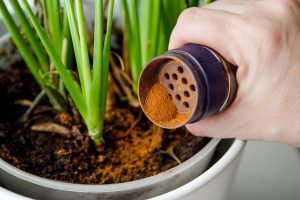Ditch the harsh chemicals and discover how everyday kitchen ingredients, from vinegar to coffee grounds, can become your greatest allies in the battle against garden weeds.
Others are reading now
Gardening enthusiasts and environmental advocates alike are constantly seeking safer, more sustainable alternatives to conventional herbicides. The good news is that the fight against unwelcome garden invaders doesn’t have to rely on chemical warfare.
Your kitchen harbors a plethora of natural weed killers, ranging from the acidic punch of vinegar to the smothering power of salt. These everyday staples offer an eco-friendly solution to maintaining a pristine lawn and garden, sparing both the environment and your wallet from the downsides of synthetic herbicides.
14 Surprising Herbicides Found in the Kitchen
-
Vinegar: Its high acetic acid content makes vinegar a potent herbicide. Aim for a sunny day application to young, annual weeds for quick, visible results.
-
Salt: Dehydrates weeds by osmosis. A simple sprinkle or a saltwater solution effectively curbs weed growth, especially in non-plant areas like driveways.
Also read
-
Baking Soda: A natural desiccant, baking soda disrupts weeds’ water balance, causing them to wilt and die. It’s especially useful in patios and pathways.
-
Boiling Water: Offers immediate weed control by scalding. Pour directly over weeds to destroy them from the top down.
-
Rubbing Alcohol: Causes rapid dehydration in weeds. Mix with water and apply under the sun for quick evaporation and minimal harm to surrounding plants.
-
Dish Soap: Breaks down the protective layers of weeds, leaving them vulnerable to dehydration. It’s particularly effective on young, small weeds.
-
Lemon Juice: The citric acid in lemon juice scorches weeds upon contact, disrupting their cellular processes and leading to their demise.
-
Borax: Utilizes boron toxicity to impede weed growth. Apply sparingly to avoid soil toxicity and damage to desired plants.
-
Cinnamon: Acts as a natural herbicide and pest deterrent. Sprinkle around plants to prevent weed germination and growth.
-
Sugar: Disrupts soil nutrient balance, particularly nitrogen, slowing weed growth without harming established plants.
-
Chili Pepper Powder: Capsaicin in chili peppers interferes with weed cellular functions, preventing photosynthesis and growth.
-
Coffee Grounds: Their acidic nature and nutrient content make grounds effective in suppressing weed germination and growth.
-
Hydrogen Peroxide: Oxidizes weed cells, causing damage and death. Mix with water and apply to target weeds directly.
-
Epsom Salt and Vinegar: A lethal combination that dehydrates and kills weeds through a potent desiccant action and pH alteration.
Application Wisdom
While these kitchen remedies offer a gentler approach to weed control, mindful application is important. Direct application to the weeds, careful avoidance of desired plants, and sparing use to prevent soil alteration are key strategies.
For those concerned about the environmental impact of traditional herbicides, these kitchen staples present a viable, effective alternative. Not only do they provide a way to repurpose common household items, but they also align with the principles of sustainable gardening.








